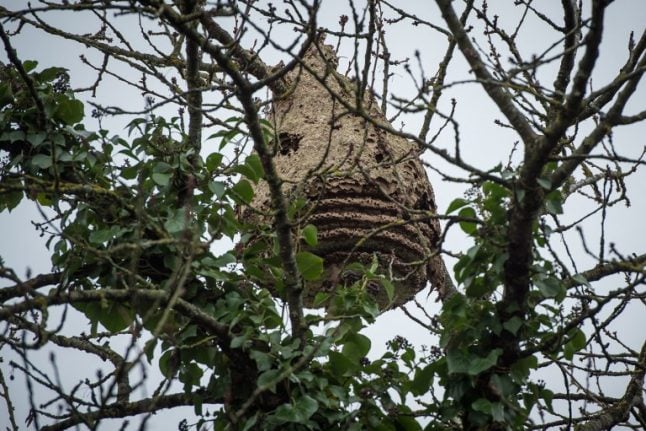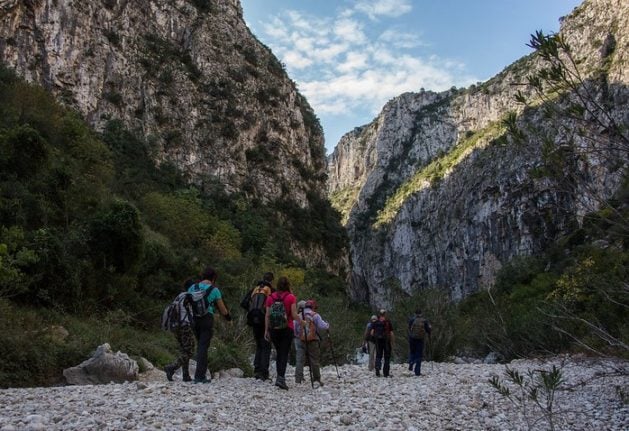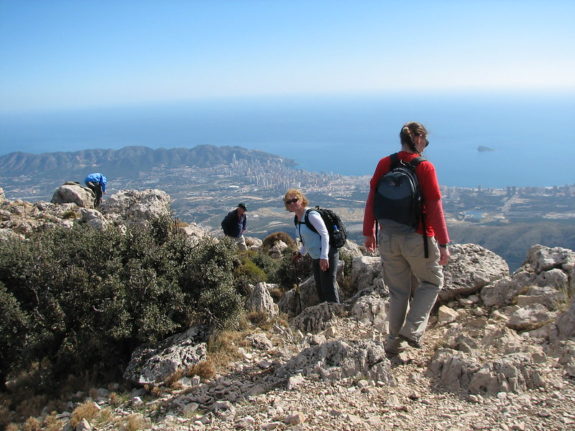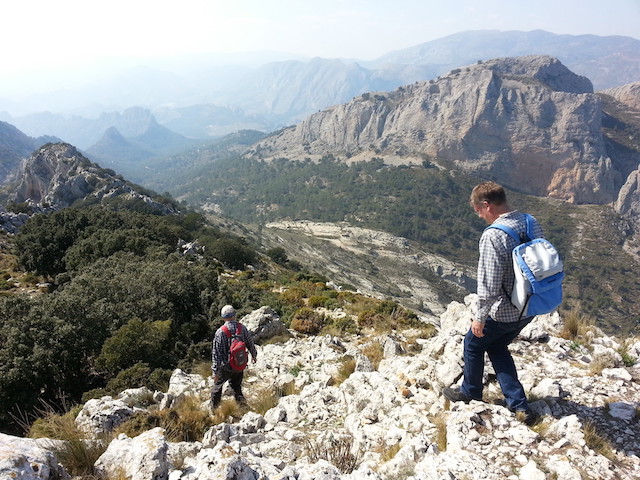Asian hornets have resulted in another fatality in France.
A 57-year-old man from the Calvados departent of Normandy died this week after being attacked by the insects.
The man was pronounced dead at the scene while another woman was treated in hospital after being stung several times. The death is just the latest linked to the insects that were accidentally introduced to France back in 2004 and which are responsible for decimating local bee populations.
In August a farmer from the far north of France was stung by an Asian hornet as he got into his car. Minutes later he fell unconscious while driving and crashed his car into a post. He died from a severe anaphylactic shock — in other words, he suffered a deadly allergic reaction to the sting.
And a woman died in the Manche department of Normandy after suffering a similar fatal reaction to being stung by Asian hornets in her garden.
There have been other fatalities too, including a Dutch tourist who died at a campsite in the Drôme due to a heart attack after being stung.
Authorities in the Manche department alone said the hornets had attacked 180 people in just three months to varying degrees. One person was stung 15 times. Some 2,230 Asian hornets's nests were identified in the department with the highest density being between Avranches and Granville.
Authorities had issued warnings as far back in April of higher number of hornets in France this year due to the mild winter. Asian hornets are active from April to November with their peak months August and September. They are inactive during the winter months.
READ ALSO: The hazardous wildlife in France you need to watch out for

But Asian hornets are now pretty much everywhere in France after first colonizing the south west before moving north and east in recent years (see map below).

Attacks by Asian hornets only normally lead to fatalities if the victims are allergic to the sting and have an anaphylactic shock or suffer a large number of stings.
So what can you do to prevent being stung and suffering from a potentially fatal allergic reaction?
First of all it's important to know if you have a nest in your garden or in close proximity to your house. The insects will normally build their nestsin hedges, budges, trees or in garages or attics.
Home owners are advised to check (at a safe distance) any bushes and hedges in their gardens, especially if they notice comings and going of hornets in the vicinity.
When looking for any nest though it's important not to disturb the branches and leaves in case it provokes an attack by the insects. They are known to attack if you come within just a few metres of the nest.
If you do discover a nest then make sure all electric gardening equipment is turned off such as lawnmowers or leaf blowers, because this too could provoke the hornets to attack.

Then you should basically stay away from the nest and give your local town hall a ring to alert them to its presence. If possible take photos of the nest from a safe distance to pass on to the town hall.
Most French town halls will take on the job of destroying Asian hornets nests which is not the case for wasps or European hornets. If you discover a wasps nest you will have to organise and pay for it to be destroyed yourself.
Asian hornets are mostly black with only the last segment of their bodies being yellowy/orange. They have yellowish legs are slightly smaller than European hornets. Their sting is no more powerful than a European hornet's but are they considered more aggressive in that they can attack even if they not themselves being threatened. One Asian hornet can also sting several times.
After the recent death in Normandy, French firefighters reminded the public not to try to destroy nests by themselves and that most clothing will be useless to protect you against the stings.
In case of an attack by hornets you are advised to take shelter in an enclosed area where the insects cannot go, such as a car or a house. Hornets will pursue their victim for around 10 to 15 metres, firefighters say.
Other advice suggests you should avoid running if you see them because they can fly faster than you are able to run and are also intrigued by running targets. Instead, crouch on the ground, stop moving and cover your head.
If you live in an area where the insect is active in large numbers, you might want to consider avoiding bright clothing, which they like, and instead wearing brown or black. They are also excited by the small of perfume, aftershave and alcohol.
If you are stung and begin to suffer a reaction including swelling of the tongue, throat, lips or eyes and vomiting, shivering or fever, then you should call 18 for the pompiers or 15 for the ambulance service.





 Please whitelist us to continue reading.
Please whitelist us to continue reading.
Member comments